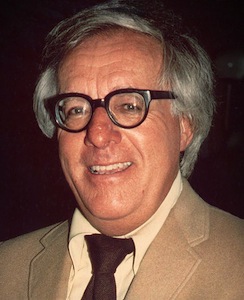The writing style of
Ray Bradbury
Ray Bradbury
1920-2012
American author and screenwriter known for his dystopian novel 'Fahrenheit 451' and other works of science fiction and fantasy.
Ray Bradbury’s writing style is a vibrant tapestry that blends lyrical prose with imaginative narratives, often weaving the fantastic with the ordinary in a way that speaks directly to the reader’s senses. His approach to storytelling is characterized by a poetic rhythm and a rich use of metaphor, which elevate his prose beyond mere communication to an art form that engages the reader on multiple levels.
Bradbury’s sentences often flow like the verses of a poem, with a musical quality that resonates with readers. He uses repetition effectively to build a mood or theme throughout his work. This technique, coupled with his choice of evocative words, often transforms his narratives into a sensory experience. Bradbury’s diction is carefully chosen to provoke thought and emotion, reflecting his background in poetry which he credited with teaching him the importance of choosing the right words.
Dialogue in Bradbury’s works does more than carry the plot forward; it reveals deep insights into his characters’ psyches, often capturing their hopes, fears, and dreams. He had a unique ability to write spoken words that felt authentic and poignant, which helped ground even his most fantastical stories in emotional reality.
Structurally, Bradbury often embraced a nonlinear approach, especially in his short stories, where he crafted scenes that could stand alone yet contribute to a larger narrative. This method allowed him to explore complex themes from multiple angles, enriching the reader’s understanding and engagement with the material.
Bradbury’s use of imagery is another hallmark of his style. He had the ability to paint vivid pictures with words, using detailed descriptions that made his fictional worlds feel tangible. This skill not only pulled readers into his stories but also left lasting impressions, making his works unforgettable.
Ray Bradbury’s writing style is a blend of lyrical expression, thoughtful word choice, and profound thematic exploration, all of which are stitched together with a deep understanding of human emotions and universal truths.
